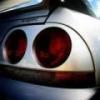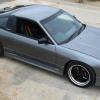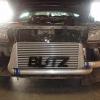Hills Motorsport
Announcements
-
Similar Content
-
Latest Posts
-
By joshuaho96 · Posted
I have a VALCON if anyone wants it, I have no idea why you'd want to have VVT specifically broken out of the ECU as opposed to running it off the FCON/whatever standalone you have. -
Hi Yes we're a bit optimistic we might get something out of sealing up the two pipes of the external wastegate and reactivating the stock one. I believe the orginal stock wastegate was tack welded shut. It doesn't budge and visually looks closed and sealed. The car has noticeably more lag so it could be at least part of the problem, maybe all. It's definately one of the key changes made since last tune. And it's one that's more difficult to fully understand and measure, not like for instance timing or cylinder compression. Thanks for that feedback, we'll let you know how this progresses. Fingers crossed. Regards Rob








Recommended Posts